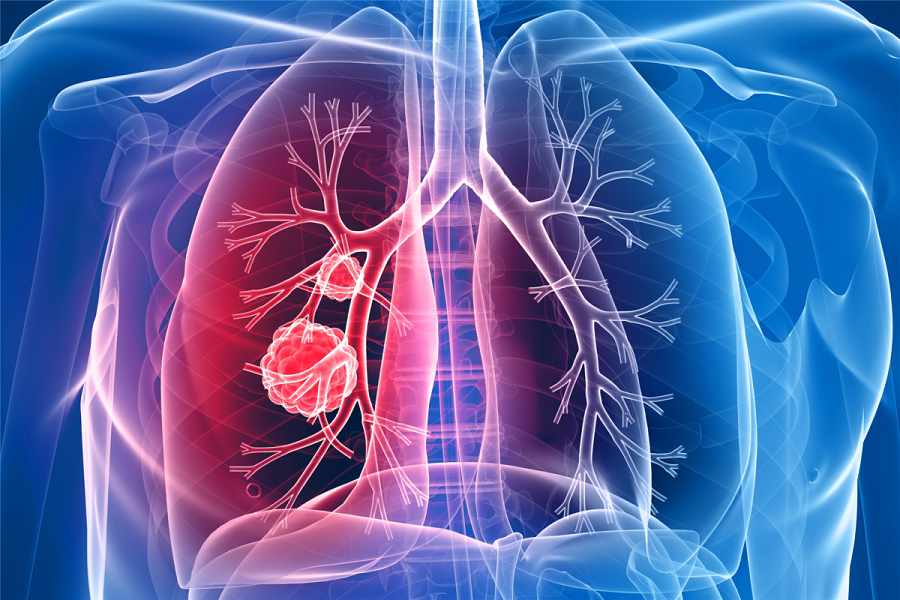Lung cancer is the most common cause of death due to cancer, with a global estimate of nearly one death in five people (1.59 million deaths, 19.4% of the total). There was an estimate of 1.8 million new cases in 2012 (12.9% of the total), 58% of which occurred in the less developed regions. Because of its high fatality (the overall ratio of mortality to incidence is 0.87). Due to the relative lack of variability in survival in different world regions, the geographical patterns in mortality closely follow those in incidence1,2. Cancer is neither rare anywhere in the world, nor mainly confined to developed countries. Striking differences in the patterns of cancer from region to region are observed. As opposed to the 5 years survival of 52% in all cancers, lung cancer survival rates continue to be poor 3.
In India, approximately 63,000 new lung cancer cases are reported each year. One of the major contributors to lung cancer is believed to be tobacco use and hence, is called a smoker’s disease. However, a significant number of patients with lung cancer have no history of smoking. Major gender, clinicopathological, and molecular differences in lung cancers arising in never-smokers strongly suggest a disease distinct from the more common tobacco-associated forms of lung cancer3.
Genetics of Lung Cancer
Lung cancer is comprised of two main histologic subtypes: Non-small-cell Lung Cancer (NSCLC) and Small-cell Lung Cancer (SCLC). Subsets of NSCLC may be characterized by recurrent driver mutations in multiple oncogenes like ALK, BRAF, EGFR, HER2, MET, KRAS, NRAS, and PIK3CA among others4.
Specialized molecular and genetic testing for these kinds of cancer would prove to be very useful in the detection and accurate treatment.
In general, hereditary lung cancer occurs more frequently in women, non-smokers, and those with early-onset lung cancer. Overall, it has been estimated that 1.7% of lung cancers up to the age of 68 are hereditary. Trend analysis reveals that patients of NSCLC, especially lung adenocarcinoma, are more likely to have a history of lung cancer than those with SCLC. Also, people with a BRCA2 mutation have a higher risk than others, of developing lung cancer5.
MedGenome’s Solutions
MedGenome, a provider of clinical genomics solutions for personalized healthcare, offers comprehensive genetic diagnostic solutions for early detection of lung cancer. The solutions provided range from single gene testing for EGFR to testing a panel of genes (oncogenes and tumor suppressor genes) implicated in the onset of the disease.
Our Hereditary Cancer Panel covers all the major genes linked to lung cancer. Early detection of cancer is the most important step in ensuring a favorable prognosis, and timely surgical intervention can reduce the risk of developing cancer by up to 85%.
References:
- http://globocan.iarc.fr/old/FactSheets/cancers/lung-new.asp
- Behera, D. “Epidemiology of lung cancer–Global and Indian perspective.”Journal, Indian Academy of Clinical Medicine 13.2 (2012).
- Noronha V, Dikshit R, Raut N, Joshi A, Pramesh C S, George K, Agarwal J P, Munshi A, Prabhash K. Epidemiology of lung cancer in India: Focus on the differences between non-smokers and smokers: A single-center experience. Indian J Cancer 2012;49:74-81
- Lovly, C., L. Horn, W. Pao. 2014. Molecular Profiling of Lung Cancer. My Cancer Genome
- http://www.mycancergenome.org/content/disease/lung-cancer/ (Updated March 31).
- http://lungcancer.about.com/od/causesoflungcance1/a/famhxlungca.htm


 Enquire
Now
Enquire
Now